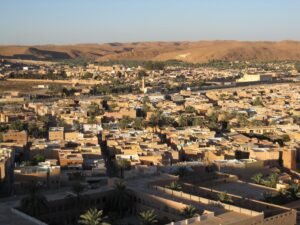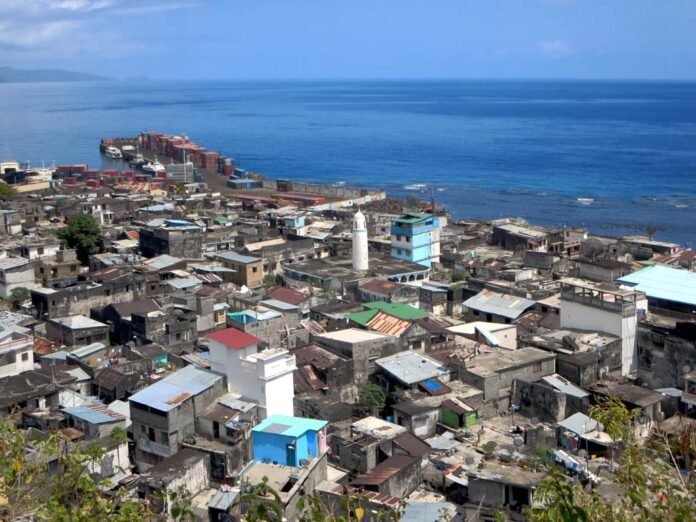Algeria’s healthcare system offers both public and private health insurance options, each serving distinct segments of the population with varying levels of coverage, accessibility, and costs. Understanding the differences and similarities between these systems helps paint a clearer picture of healthcare access in the country.
Public Health Insurance in Algeria
The public health insurance system in Algeria is mainly administered through two national schemes: CNAS (Caisse Nationale des Assurances Sociales des Travailleurs Salariés) for salaried workers and CASNOS (Caisse Nationale de Sécurité Sociale des Non-Salariés) for self-employed individuals. These programs are mandatory and funded through payroll or individual contributions, often supplemented by the government. They provide comprehensive healthcare coverage, including reimbursements of up to 80% for most medical services and full coverage for chronic diseases. Maternity, occupational illness, disability, and work-related injury benefits are also included.
Public insurance entitles beneficiaries to use government-funded hospitals and clinics across the country. Although coverage is extensive and constitutionally guaranteed, the public system is challenged by under-resourced facilities, long wait times, and limited access to advanced medical technologies. In some cases, public schemes allow treatment in private facilities through specific agreements, and even cover medical transfers abroad if services are unavailable domestically.
Private Health Insurance in Algeria
In contrast, private health insurance in Algeria is largely supplementary and optional. Leading companies such as SAA, CAAT, CASH Assurances, CAAR, and CNMA offer health plans that target higher-income individuals and expatriates. These plans often provide access to private clinics, shorter waiting periods, and international care options not available under public schemes.
Unlike public insurance, private plans are funded entirely by individuals or employers on a voluntary basis, making them significantly more expensive. However, they appeal to those seeking comfort, speed, and access to higher-end or international medical services. These plans typically cover services that are either unavailable or inefficiently delivered in the public system, such as elective surgeries, specialized diagnostics, and luxury accommodations during hospitalization.
Similarities and Differences
Both systems aim to improve health outcomes, but they differ significantly in structure and accessibility. Public insurance is broad and inclusive, prioritizing universal access, while private insurance is exclusive and quality-focused, designed for those who can afford it. Both may cover some private care through agreements, though private insurance offers more extensive private sector and overseas options. While public insurance is heavily subsidized, private plans carry high out-of-pocket costs.
Top Public Health Insurances in Algeria: Coverage, Cost, and Consumer Insights
Algeria offers a structured public healthcare system funded primarily by social security contributions and government subsidies. While the country’s health insurance landscape is not diversified with multiple public insurers as seen in some other nations, the primary and centralized scheme, Caisse Nationale des Assurances Sociales des Travailleurs Salariés (CNAS), plays a dominant role in delivering universal healthcare access. Below is a comprehensive breakdown of Algeria’s public health insurance coverage.
1. Caisse Nationale des Assurances Sociales des Travailleurs Salariés (CNAS)(Official website: https://www.cnas.dz)
Cost:
Enrollment in CNAS is automatic for salaried employees and is funded through payroll deductions—typically around 34.5% of gross salary, of which approximately 12.5% goes directly to health and social security. Employers contribute the bulk, making it relatively affordable for workers.
Available Services / Coverage Features:
CNAS offers extensive coverage including:
- Outpatient and inpatient care
- Specialist consultations
- Surgical procedures
- Diagnostic imaging and laboratory tests
- Maternity care
- Prescribed medications (with a co-payment system)
- Chronic disease management
- Preventive services including immunization and screening
The plan also includes access to public hospitals and clinics, and partial reimbursements for services from approved private providers when necessary.
Open for All or Limited:
CNAS is mandatory for salaried workers and open to:
- Salaried employees in the formal sector
- Pensioners
- Certain self-employed groups
- Students (in some cases, through affiliated programs)
- Low-income or indigent populations may also benefit under state-subsidized programs, though access may be less comprehensive.
Core Financial Features:
- Co-payment System: Patients typically pay a portion of medication or outpatient costs upfront and receive reimbursements from CNAS. The reimbursement rate can vary but often covers up to 80% of essential drugs and services.
- Direct Billing: For many public hospitals, there is a direct billing system in place that reduces the need for out-of-pocket payments at the point of care.
- Sick Leave & Maternity Benefits: CNAS offers wage compensation during medically certified sick leave and maternity leave for insured workers.
Consumer Satisfaction Score:
On average, CNAS receives a moderate satisfaction rating, estimated at 6.5 out of 10. While consumers appreciate the affordability and comprehensive coverage, challenges such as:
- Long wait times
- Limited availability of advanced treatments
- Bureaucratic delays in reimbursement
- Inconsistencies in rural vs. urban care quality
contribute to a somewhat mixed perception.
Top Private Health Insurances in Algeria: Features, Access, and Consumer Ratings
Algeria’s private health insurance sector is relatively underdeveloped compared to its public counterpart. The public healthcare system remains the dominant provider, with the private sector playing a complementary role, primarily catering to wealthier individuals and expatriates seeking faster or more specialized services. As of now, there are very few private health insurance providers operating in Algeria, and the market is mostly dominated by public coverage through CNAS. However, some private insurers and mutual health organizations (mutuelles) do offer optional supplementary or private insurance plans. Below are the notable private health insurance options available in Algeria.
1. Compagnie Algérienne des Assurances (CAAT Santé)(Official website: https://www.caat.dz)
Cost:
Premiums vary based on age, health status, and chosen plan, typically starting from around 5,000 to 15,000 DZD/month (approx. $35–$110 USD).
Available Services / Coverage Features:
- Specialist consultations in private clinics
- Diagnostic tests (MRI, CT scans, etc.)
- Surgical procedures
- Dental care (limited or add-on coverage)
- Emergency hospitalization
- Prescription drug reimbursement
- Some plans offer maternity benefits
Open for All or Limited:
Open to individuals, families, and corporate groups. Coverage requires medical underwriting in some cases.
Core Financial Features:
- Direct billing network with selected private clinics
- Reimbursement-based coverage for non-network providers
- Options for co-payments and deductibles to reduce premiums
Consumer Satisfaction Score:
Approximately 7 out of 10, with clients appreciating the faster access to private care and broader service choices. However, some report limited clinic networks and paperwork delays for reimbursements.
2. Alliance Assurances – Assurance Santé(Official website: https://www.allianceassurances.com.dz)
Cost:
Starting from 4,000 DZD/month (approx. $30 USD) for basic plans and rising with increased coverage.
Available Services / Coverage Features:
- Outpatient consultations
- Inpatient and surgical care
- Reimbursement for medications
- Maternity and pediatric care (premium plans)
- Access to private specialist networks
Open for All or Limited:
Available to individuals, families, and businesses. Not all plans are open to those with pre-existing conditions.
Core Financial Features:
- Tiered coverage options (Basic, Comfort, Premium)
- Up to 90% reimbursement for eligible expenses
- Some plans have annual limits
Consumer Satisfaction Score:
6.8 out of 10 — generally positive, especially for urban users, though limitations in provider networks and pre-authorization requirements can be frustrating.
3. AXA Assurance Algérie (International Medical Insurance)(Official website: https://www.axa.dz)
Cost:
Premiums for expatriates and higher-income locals start at around 15,000 DZD/month (approx. $110 USD) and can exceed 50,000 DZD/month for international plans.
Available Services / Coverage Features:
- Global hospitalization coverage
- Emergency evacuation
- Dental and optical (add-ons)
- Cancer care and chronic disease management
- Multilingual support and telemedicine services
Open for All or Limited:
Primarily targeted at expatriates, international businesspeople, and upper-income residents. Requires medical underwriting.
Core Financial Features:
- Broad international hospital network
- Prepaid access with little out-of-pocket spending
- High annual caps (often exceeding $1 million USD)
Consumer Satisfaction Score:
8.5 out of 10 — praised for international flexibility, premium service, and prompt claims processing. Less accessible for the average Algerian due to high cost.
READ MORE: Private and public health insurance of United Kingdom (Make informed choices)


